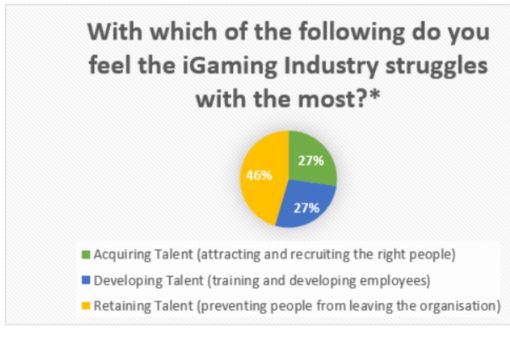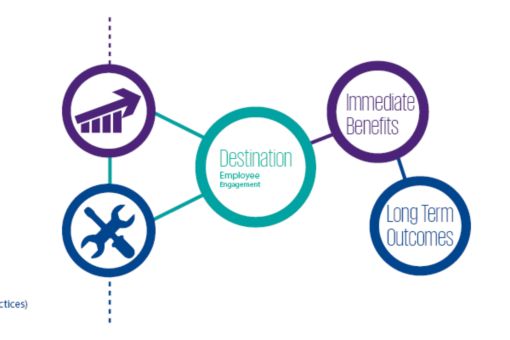Talent Retention: is Salary Enough?
Talent Retention: is Salary Enough?
Organisations need to focus on retaining talent that is willing to invest their time and effort into growing and developing the organisation.
What brings talent to the door is no longer enough to make them stay. Organisations need to think about what they can do to create an environment that ensures they retain talent that is willing to invest their time and effort into growing and developing the organisation.
The iGaming sector in Malta has flourished over the past thirteen years, and today contributes towards a large percentage of Malta’s overall GDP. As a result of this exponential growth, the country now hosts over 270 gaming operators, has issued more than 500 licences, and possesses a large workforce of thousands of multi-national industry professionals.
The growth and dependence on the thriving iGaming sector ensures that Malta constantly works towards safeguarding and renewing its jurisdictional benefits in order for international operators to continue to choose our island as the ideal location for their operations. However, as the industry develops, it also creates one challenge that some may fail to consider, that of effectively managing talent.
An organisation’s talent is its greatest asset. It is through its people that an organisation will be able to achieve its business objectives and reach and maintain its competitive advantage. Thus, managing talent involves anticipating the need and type of talent (human capital) required by an organisation, and then setting a plan to meet that need. It also involves ensuring an organisation is in a position to attract, acquire, develop, and retain talent, i.e. organisations must bring people to the door, provide them with the tools and skills necessary to help them develop themselves and the organisation, and most importantly keep them happy and activated in order to not only stop them from leaving, but also to perform better.
It is common knowledge that iGaming companies have invested a lot in ensuring that they attract and acquire talent, through offering higher salaries and better benefits than most other industries are able to offer. However, with the competition for talent within the industry being at an all-time high, is this enough to manage talent effectively and achieve business objectives? Staff turnover rates in the iGaming industry clearly show that, no, it is not enough.

If salary and benefits aren’t enough, what makes people stay, and go the extra mile?
Research and practice both show that one of the key factors linked to employee retention is the emotional bond an employee feels with their employer, i.e. how engaged an employee is with their organisation. This is not to be confused with employee satisfaction.
Whilst employee satisfaction may be seen as a facet of employee engagement, it does not account for the emotional bond that characterises employee engagement. A satisfied employee may show up to work without complaint and be relatively satisfied at work, however, it is unlikely that they will go the extra mile and they will probably be easily enticed by another organisation offering a slightly higher salary.
Employee Engagement involves unlocking employee full potential to drive high performance; capturing employeediscretionary effort, the above and beyond effort people could give if they wanted to.
-
Highly engaged employees are:
• 5x more committed to helping their company succeed.
• 3x more likely to recommend improvements.
• 4x more likely to recommend their organisation as an employer.
-
Disengaged employees are:
• 4x more likely to leave their jobs.
• 3x more likely to be led by disengaged managers.
-
87% of CEOs recognise that disengagement is the largest threat to their business.
- Source: Gallup Studies -
When organisations talk about retaining staff they should be thinking about what they can do to ensure that an employee feels emotionally linked to their organisation and its goals, and therefore highly engaged.
That being said, this emotional bond and high level of engagement is not something that develops overnight. It is a journey that an employee and organisation must embark upon together. The first step in this journey is for an organisation to take stock of their current engagement levels. Before moving forward, it is essential that the organisation knows where it stands. It must listen to employees and obtain an understanding of what is driving engagement/disengagement levels in their organisation. By looking at the drivers related to engagement, organisations will get a clearer picture of, and define, what is truly working and what can be improved. This, in turn, will support an organisation in developing an employee engagement strategy that truly nurtures the development of an emotional bond between employee and employer.
Things that get measured get managed.
The most commonly used means to measure employee engagement is through an online diagnostic tool. However, if organisations want to increase retention through engagement, then choosing which survey to conduct is critical. It is essential that the survey chosen actually does assess what is driving engagement. KPMG People and Change’s Employee Engagement Plus Index does exactly this. It is a tool that supports organisations in taking stock, and measuring their current engagement levels through an online questionnaire answered by employees.
The unique edge of this tool is that it appreciates that engagement is a multifaceted concept and thus, does not measure engagement as a standalone construct, but holistically, also incorporating other scientifically proven drivers of engagement, such as leadership, communication and work commitment. Furthermore, the tool also allows for the evaluation of an organisation’s HR management practices that act as a vehicle to achieve employee engagement. Together, all of this uniquely derived data, will provide business leaders and decision makers with invaluable information related to their organisation’s strengths, areas for improvement, areas of critical concern, and therefore, ultimately, support the organisation in reaching its final destination of a highly engaged workforce.

The KPMG Employee Engagement Plus Index¹ provides for the ideal foundations upon which to build and implement specific and targeted actions that truly work towards increasing employee engagement in organisations. By understanding what is driving or inhibiting engagement, an organisation will be able to treat the root cause of any employee engagement issues, and thus be in a better position to develop a strong emotional bond with employees, subsequently creating an environment that ensures they retain talent that is willing to invest their time and effort in growing and developing the business.
KPMG’s People and Change Advisory Team is actively working within the iGaming sphere, through providing its clients with strategic talent management interventions that are grounded in an evidence based approach.
“To win in the marketplace you must
first win in the workplace.”
1 – You may find more information about the KPMG Employee Engagement Plus Index at www.kpmg.com/mt/eepi-malta
© 2026 KPMG, a Maltese civil partnership and a member firm of the KPMG global organisation of independent member firms affiliated with KPMG International Limited, a private English company limited by guarantee. All rights reserved.
For more detail about the structure of the KPMG global organization please visit https://kpmg.com/governance.
